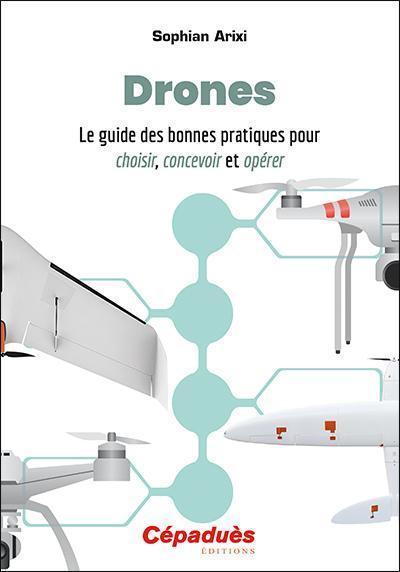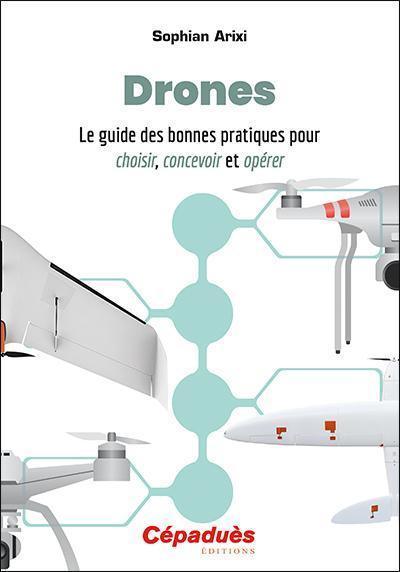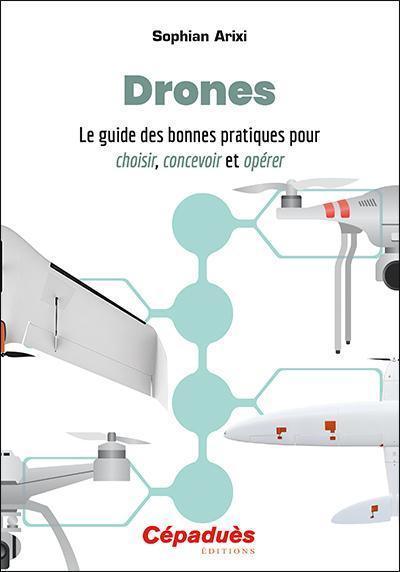UAVS - THE GUIDE TO GOOD PRACTICE IN SELECTING, DESIGNING AND OPERATING UAVS
For a professional, ensuring the success of a project means choosing the right drone among dozens of possible types of machines, the drone that will allow you to carry it out. Only one machine will have to stand out from the crowd, answering the many questions you need to ask yourself:
What are the different types of drones and their uses?
Is it better to build your own drone or to buy one ready to fly?
What are the elements of the drone that will allow you to make the right choice?
How to choose your batteries?
What are the criteria for choosing an autopilot?
A UAV is only an airborne vector carrying the payload and perfecting this symbiosis between the project and the machine, also imposes its share of questions to be solved such as: How to design its payload?
What are the impacts of the payload on the choice of the UAV and on the flight path?
Finally, the place of operation also has its constraints:
What are the precautions to be taken to operate in the field?
What organisation should be adopted?
How should the radio link be sized to avoid a communication breakdown?
What are the choices to be made among the different launch and recovery systems?
This book will accompany you in order to bring your answer, and to know how to organize yourself to implement it.
No se ha podido cargar la disponibilidad de recogida
DRONES - LE GUIDE DES BONNES PRATIQUES POUR CHOISIR, CONCEVOIR ET OPÉRER está agotado y se enviará tan pronto como vuelva a estar disponible.
Paiement sécurisé
Vos informations de paiement sont traitées de manière sécurisée. Nous ne stockons pas les détails de votre carte de crédit et n'avons pas accès aux informations de votre carte de crédit.





